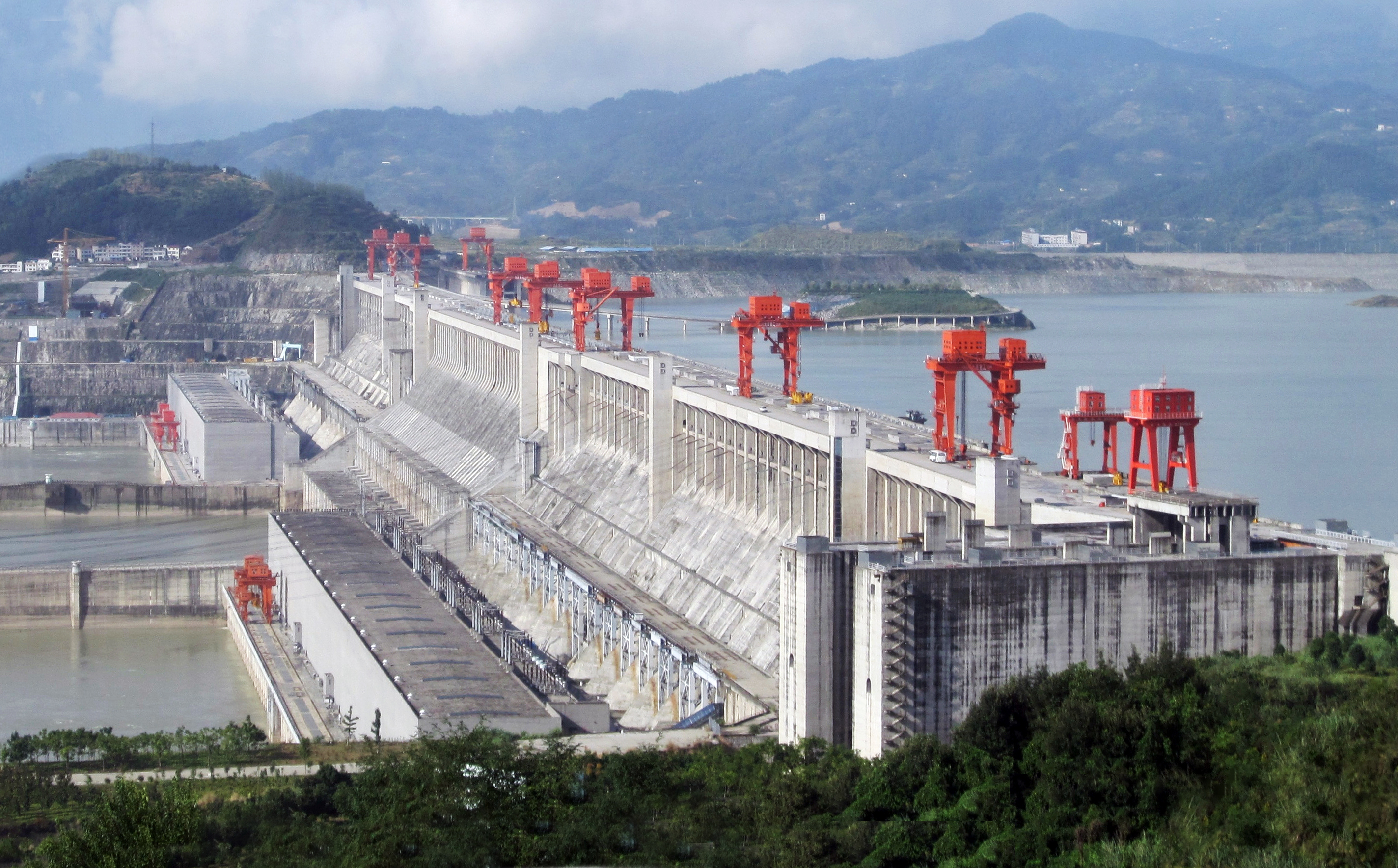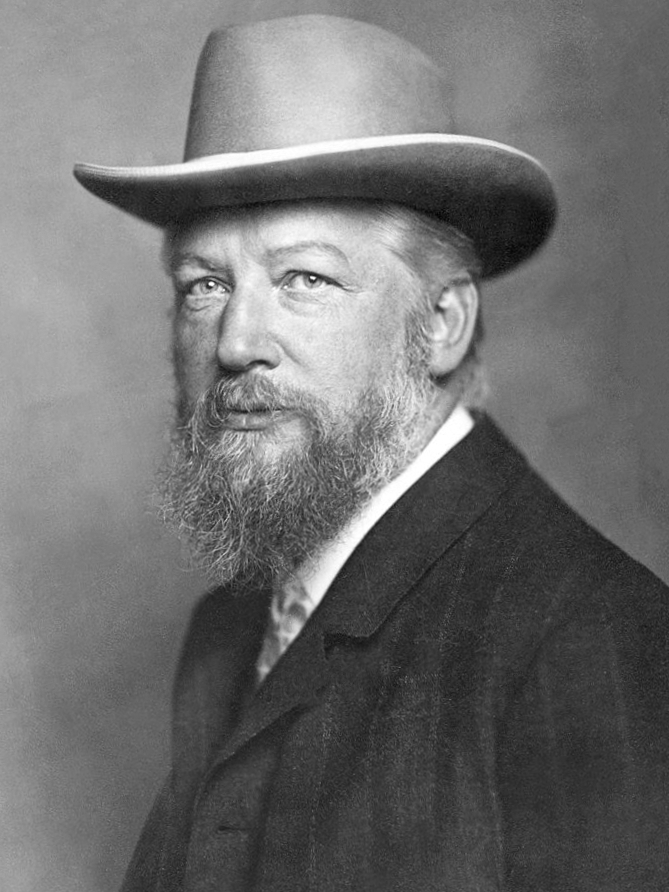|
Mikhail Dolivo-Dobrovolsky
Mikhail Osipovich Dolivo-Dobrovolsky (russian: Михаи́л О́сипович Доли́во-Доброво́льский; german: Michail von Dolivo-Dobrowolsky or ''Michail Ossipowitsch Doliwo-Dobrowolski''; – ) was a Russian Empire-born engineer, electrician, and inventor of Polish-Russian origins, active in the German Empire and also in Switzerland. After studying in Germany and while working in Berlin for ''Allgemeine Elektricitäts-Gesellschaft'' (AEG), he became one of the founders (the others were Nikola Tesla, Galileo Ferraris and Jonas Wenström) of polyphase electrical systems, developing the three-phase electrical generator and a three-phase electrical motor (1888) and studying star and delta connections. The triumph of the three-phase system was displayed in Europe at the International Electro-Technical Exhibition of 1891, where Dolivo-Dobrovolsky used this system to transmit electric power at the distance of 176 km with 75% efficiency. In 1891 he ... [...More Info...] [...Related Items...] OR: [Wikipedia] [Google] [Baidu] |
Hydroelectric Power Plant
Hydroelectricity, or hydroelectric power, is electricity generated from hydropower (water power). Hydropower supplies one sixth of the world's electricity, almost 4500 TWh in 2020, which is more than all other renewable sources combined and also more than nuclear power. Hydropower can provide large amounts of low-carbon electricity on demand, making it a key element for creating secure and clean electricity supply systems. A hydroelectric power station that has a dam and reservoir is a flexible source, since the amount of electricity produced can be increased or decreased in seconds or minutes in response to varying electricity demand. Once a hydroelectric complex is constructed, it produces no direct waste, and almost always emits considerably less greenhouse gas than fossil fuel-powered energy plants. [...More Info...] [...Related Items...] OR: [Wikipedia] [Google] [Baidu] |
German Empire
The German Empire (),Herbert Tuttle wrote in September 1881 that the term "Reich" does not literally connote an empire as has been commonly assumed by English-speaking people. The term literally denotes an empire – particularly a hereditary empire led by an emperor, although has been used in German to denote the Roman Empire because it had a weak hereditary tradition. In the case of the German Empire, the official name was , which is properly translated as "German Empire" because the official position of head of state in the constitution of the German Empire was officially a "presidency" of a confederation of German states led by the King of Prussia who would assume "the title of German Emperor" as referring to the German people, but was not emperor of Germany as in an emperor of a state. –The German Empire" ''Harper's New Monthly Magazine''. vol. 63, issue 376, pp. 591–603; here p. 593. also referred to as Imperial Germany, the Second Reich, as well as simply Germany, ... [...More Info...] [...Related Items...] OR: [Wikipedia] [Google] [Baidu] |
Technische Universität Darmstadt
The Technische Universität Darmstadt (official English name Technical University of Darmstadt, sometimes also referred to as Darmstadt University of Technology), commonly known as TU Darmstadt, is a research university in the city of Darmstadt, Germany. It was founded in 1877 and received the right to award doctorates in 1899. In 1882, it was the first university in the world to set up a chair in electrical engineering. In 1883, the university founded the first Department of Electrical Engineering and Information Technology of TU Darmstadt, faculty of electrical engineering and introduced the world's first degree course in electrical engineering.History of the department of Electrical Engineering: (German) In 2004, it became the first German university to be declared as an autonomous university. TU Darmstadt has assumed a pioneering role in Germany. Computer science, electrical engineering, artificial intelligence, mechatronics, business informatics, political science and many ... [...More Info...] [...Related Items...] OR: [Wikipedia] [Google] [Baidu] |
Electrical Engineering
Electrical engineering is an engineering discipline concerned with the study, design, and application of equipment, devices, and systems which use electricity, electronics, and electromagnetism. It emerged as an identifiable occupation in the latter half of the 19th century after commercialization of the electric telegraph, the telephone, and electrical power generation, distribution, and use. Electrical engineering is now divided into a wide range of different fields, including computer engineering, systems engineering, power engineering, telecommunications, radio-frequency engineering, signal processing, instrumentation, photovoltaic cells, electronics, and optics and photonics. Many of these disciplines overlap with other engineering branches, spanning a huge number of specializations including hardware engineering, power electronics, electromagnetics and waves, microwave engineering, nanotechnology, electrochemistry, renewable energies, mechatronics/control, and electrical m ... [...More Info...] [...Related Items...] OR: [Wikipedia] [Google] [Baidu] |
Germany
Germany,, officially the Federal Republic of Germany, is a country in Central Europe. It is the second most populous country in Europe after Russia, and the most populous member state of the European Union. Germany is situated between the Baltic and North seas to the north, and the Alps to the south; it covers an area of , with a population of almost 84 million within its 16 constituent states. Germany borders Denmark to the north, Poland and the Czech Republic to the east, Austria and Switzerland to the south, and France, Luxembourg, Belgium, and the Netherlands to the west. The nation's capital and most populous city is Berlin and its financial centre is Frankfurt; the largest urban area is the Ruhr. Various Germanic tribes have inhabited the northern parts of modern Germany since classical antiquity. A region named Germania was documented before AD 100. In 962, the Kingdom of Germany formed the bulk of the Holy Roman Empire. During the 16th ce ... [...More Info...] [...Related Items...] OR: [Wikipedia] [Google] [Baidu] |
Exmatriculation
Exmatriculation is the removal of a student's name from the list of current students when they leave a university. It refers to the deregistering or unenrolling of a student as a result of graduation, expulsion Expulsion or expelled may refer to: General * Deportation * Ejection (sports) * Eviction * Exile * Expeller pressing * Expulsion (education) * Expulsion from the United States Congress * Extradition * Forced migration * Ostracism * Persona non ..., inability to pay school fees, meet academic progress requirements or their self withdrawal from the university. After exmatriculation In cases of voluntary withdrawal, some schools, depending on their various conditions, may reimburse part of the fees if the student applies for it. Unlike after a leave of absence, continuation of your studies following voluntary exmatriculation may be faced with difficulties. Expelled students are usually barred from being readmitted into the university from which they were exmatriculate ... [...More Info...] [...Related Items...] OR: [Wikipedia] [Google] [Baidu] |
Alexander II Of Russia
Alexander II ( rus, Алекса́ндр II Никола́евич, Aleksándr II Nikoláyevich, p=ɐlʲɪˈksandr ftɐˈroj nʲɪkɐˈlajɪvʲɪtɕ; 29 April 181813 March 1881) was Emperor of Russia, Congress Poland, King of Poland and Grand Duke of Finland from 2 March 1855 until Assassination of Alexander II of Russia, his assassination in 1881. Alexander's most significant reform as emperor was the emancipation reform of 1861, emancipation of Serfdom in Russia, Russia's serfs in 1861, for which he is known as Alexander the Liberator ( rus, Алекса́ндр Освободи́тель, r=Aleksándr Osvobodytel, p=ɐlʲɪˈksandr ɐsvəbɐˈdʲitʲɪlʲ). The tsar was responsible for other reforms, including reorganizing the judicial system, setting up elected local judges, abolishing corporal punishment, promoting local self-government through the ''zemstvo'' system, imposing universal military service, ending some privileges of the nobility, and promoting university e ... [...More Info...] [...Related Items...] OR: [Wikipedia] [Google] [Baidu] |
German Language
German ( ) is a West Germanic languages, West Germanic language mainly spoken in Central Europe. It is the most widely spoken and Official language, official or co-official language in Germany, Austria, Switzerland, Liechtenstein, and the Italy, Italian province of South Tyrol. It is also a co-official language of Luxembourg and German-speaking Community of Belgium, Belgium, as well as a national language in Namibia. Outside Germany, it is also spoken by German communities in France (Bas-Rhin), Czech Republic (North Bohemia), Poland (Upper Silesia), Slovakia (Bratislava Region), and Hungary (Sopron). German is most similar to other languages within the West Germanic language branch, including Afrikaans, Dutch language, Dutch, English language, English, the Frisian languages, Low German, Luxembourgish, Scots language, Scots, and Yiddish. It also contains close similarities in vocabulary to some languages in the North Germanic languages, North Germanic group, such as Danish lan ... [...More Info...] [...Related Items...] OR: [Wikipedia] [Google] [Baidu] |
Baltic Germans
Baltic Germans (german: Deutsch-Balten or , later ) were ethnic German inhabitants of the eastern shores of the Baltic Sea, in what today are Estonia and Latvia. Since their coerced resettlement in 1939, Baltic Germans have markedly declined as a geographically determined ethnic group. However, it is estimated that several thousand people with some form of (Baltic) German identity still reside in Latvia and Estonia. Since the Middle Ages, native German-speakers formed the majority of merchants and clergy, and the large majority of the local landowning nobility who effectively constituted a ruling class over indigenous Latvian and Estonian non-nobles. By the time a distinct Baltic German ethnic identity began emerging in the 19th century, the majority of self-identifying Baltic Germans were non-nobles belonging mostly to the urban and professional middle class. In the 12th and 13th centuries, Catholic German traders and crusaders (''see '') began settling in the eas ... [...More Info...] [...Related Items...] OR: [Wikipedia] [Google] [Baidu] |
Riga Technical University
Riga Technical University (RTU) ( lv, Rīgas Tehniskā universitāte) is the oldest technical university in the Baltic countries established on October 14, 1862. It is located in Riga, Latvia and was previously known as 'Riga Polytechnical Institute' and 'Riga Polytechnicum'. History Riga Polytechnical Institute (1862–1918) Riga Polytechnicum was first established in 1862 and was the first poly technical institute in Imperial Russia. It offered degrees in agriculture, chemistry, engineering, mechanics, trade and architecture, with education in German. In addition to four technical faculties (architecture, engineering, mechanical engineering, chemistry), the polytechnic also included an agricultural and a commercial faculty. The first lecturers came from Germany, Switzerland and Austria-Hungary. The language of instruction was German. Between 1863 and 1869, the number of students grew from sixteen to ninety. In 1869 the polytechnic moved into a new building. Since there was a l ... [...More Info...] [...Related Items...] OR: [Wikipedia] [Google] [Baidu] |


.jpg)

.jpg)

